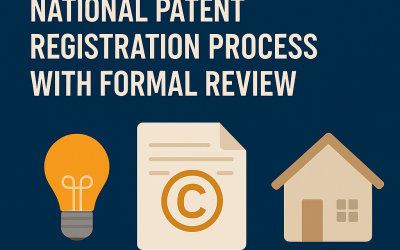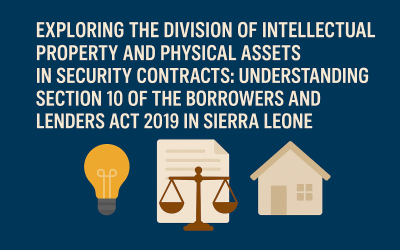In today’s digital era, trademarks are no longer confined to physical goods and services. The advent of e-commerce and digital brand establishment has increased the significance of domain names and online trademarks as indispensable assets for enterprises. This shift has given rise to a new form of intellectual property infringement known as trademark squatting or cybersquatting. Owing to the escalating prevalence of such practices, the Cybersecurity and Crime Act of 2021 incorporated stipulations to counteract these occurrences effectively.
The legislation’s primary aim is to proactively confront this issue, with Section 45 specifically focusing on matters related to cyber and trademark squatting. This article delves into a comprehensive analysis of section 45 and other pertinent clauses within the act, furnishing valuable insights for trademark and domain proprietors, as well as relevant stakeholders, regarding safeguarding their intellectual property assets in the digital sphere in Sierra Leone.
Cybersquatting and trademark squatting are synonymous terms denoting the act of an individual or entity registering, utilizing, or trading in a domain name that mirrors or closely resembles a registered trademark, domain name, business, or other intellectual property owned by another party. Typically, squatters engage in such activities to capitalize on the brand reputation of the rightful trademark owner, either by vending the domain or trademark back to the legitimate owner at an inflated price or by leveraging it to deceive customers. In Sierra Leone, such practices are expressly addressed under section 45 of the Cyber Security and Crime Act, 2021. This section establishes a coherent legal framework for combating cybersquatting. It explicitly states that any individual (inclusive of corporations, partnerships, or associations) who deliberately appropriates or utilizes a name, business name, trademark, domain name, or any other term or expression registered, owned, or in use by an individual, corporate body, or governmental entity in Sierra Leone without lawful authorization, entitlement, or justifiable excuse commits an offense.
The pivotal aspect here pertains to the “intent to disrupt” the lawful utilization of the name or trademark by its rightful possessor, irrespective of whether the original trademark or domain owner is domestically situated in Sierra Leone or overseas. In such instances, the legislation provides for both civil and criminal repercussions for those involved in trademark or cybersquatting activities. These legal recourses play a pivotal role in contesting malevolent trademark registrations at the Intellectual Property Department within the Office of the Administrator and Registrar General or nullifying such registrations. In situations where the squatter declines to relinquish the domain name or trademark after a formal request by the rightful owner, civil liabilities can be pursued through litigation at the High Court in Sierra Leone under the tort of passing off.
Furthermore, in case of bad-faith trademark squatting through registration at the Intellectual Property Department of the Office of the Administration and Registrar General, the rightful trademark owner reserves the right to petition for trademark annulment and subsequent registration in their name. Criminal liability may involve prosecution, leading to potential imprisonment and/or fines if the trademark or domain squatter is convicted.
In conclusion, trademark squatting poses a growing challenge in the digital landscape; nonetheless, Sierra Leone’s Cyber Security and Crime Act 2021 furnishes a legal framework to combat this issue, with section 45 specifically honing in on cybersquatting, offering a repertoire of civil and criminal remedies to safeguard intellectual property rights.
At PREXTIP, we specialize in assisting businesses and innovators in Sierra Leone in navigating the intricacies of intellectual property protection. For further inquiries, please reach out to us at info@prextiplaw.com.




